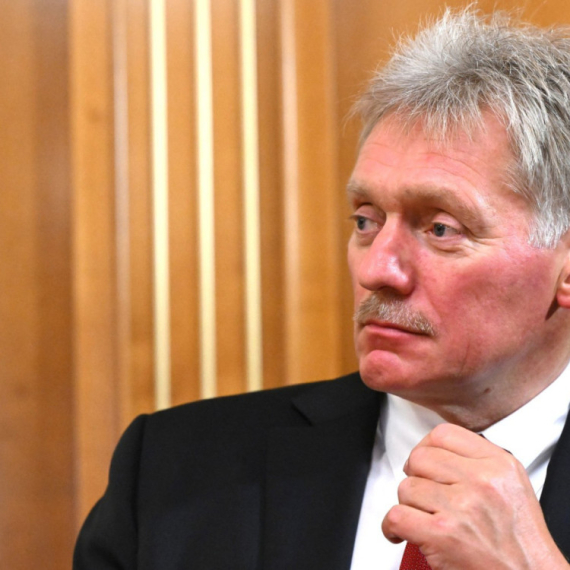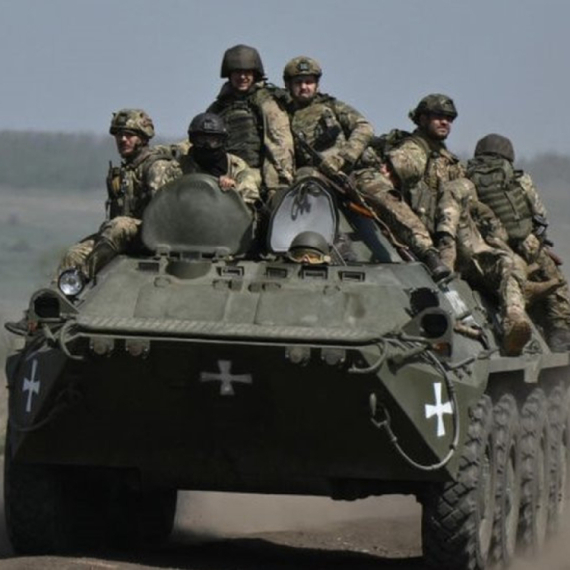"EE banks in precarious position"
The economic situation in E.Europe has reached the point where it could seriously shake Western banks, which are the biggest lenders to clients in the region.
Thursday, 19.02.2009.
15:46

The economic situation in E.Europe has reached the point where it could seriously shake Western banks, which are the biggest lenders to clients in the region. The EU is aware of the danger. Economic and Monetary Commissioner for Affairs Joaquin Almunia said that he shared Austria’s concern, whose banks, Erste and Raiffeisen, are under pressure because of the deteriorating economic and financial situation in Ukraine, Serbia, Croatia and Romania. "EE banks in precarious position" However, Finance Minister Mladjan Dinkic says that the banking system in Serbia is the strongest in the region. World Bank President Robert Zoellick told The Financial Times that the Bank was working with the International Monetary Fund (IMF) and other multilateral institutions to help the region, but those efforts required more support from Brussels. Raiffeisen International bosses stated that, despite the fall in value of those banks’ shares on the stock exchange, they had no plans to pull out of Eastern Europe. Yesterday, the French bank Societe Generale stated that it would enter 2009 with a solid capital base and ambitions to support its clients in France and other countries where it works. Meanwhile, Ukraine has asked for assistance from European Bank for Reconstruction and Development to help prop up its faltering economy. Dinkic, the Serbian deputy prime minister, said that “our banks are the strongest in the region,” and that “the last two months have seen the return of citizens’ savings to banks, which is encouraging.” “About EUR 150mn was deposited in banks in the first two months of this year, and that’s the strongest part of our system. I believe that, thanks to the strong banking system, Serbia will weather the economic crisis more easily than some other countries,” he said. Dinkic said that the government would do all it could to avoid a recession in Serbia. He even expects limited economic growth this year. He told reporters that the biggest economic problems would face industry, which was why a program had been drafted, whereby banks’ reserve capital would be placed in such a way as to improve their solvency. “It is certain that growth depends on loans given to industry, and I expect that this inflow of money will enable us to achieve light economic growth this year,” he said. “If you look at the EU, most countries have entered a recession, but some have avoided it, such as Slovakia,” said Dinkic, adding that he thought “Serbia will be in that group.”
"EE banks in precarious position"
However, Finance Minister Mlađan Dinkić says that the banking system in Serbia is the strongest in the region.World Bank President Robert Zoellick told The Financial Times that the Bank was working with the International Monetary Fund (IMF) and other multilateral institutions to help the region, but those efforts required more support from Brussels.
Raiffeisen International bosses stated that, despite the fall in value of those banks’ shares on the stock exchange, they had no plans to pull out of Eastern Europe.
Yesterday, the French bank Societe Generale stated that it would enter 2009 with a solid capital base and ambitions to support its clients in France and other countries where it works.
Meanwhile, Ukraine has asked for assistance from European Bank for Reconstruction and Development to help prop up its faltering economy.
Dinkić, the Serbian deputy prime minister, said that “our banks are the strongest in the region,” and that “the last two months have seen the return of citizens’ savings to banks, which is encouraging.”
“About EUR 150mn was deposited in banks in the first two months of this year, and that’s the strongest part of our system. I believe that, thanks to the strong banking system, Serbia will weather the economic crisis more easily than some other countries,” he said.
Dinkić said that the government would do all it could to avoid a recession in Serbia. He even expects limited economic growth this year.
He told reporters that the biggest economic problems would face industry, which was why a program had been drafted, whereby banks’ reserve capital would be placed in such a way as to improve their solvency.
“It is certain that growth depends on loans given to industry, and I expect that this inflow of money will enable us to achieve light economic growth this year,” he said.
“If you look at the EU, most countries have entered a recession, but some have avoided it, such as Slovakia,” said Dinkić, adding that he thought “Serbia will be in that group.”



























































Komentari 1
Pogledaj komentare